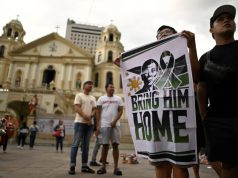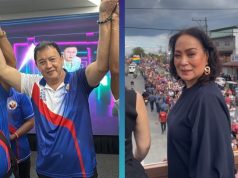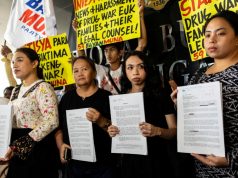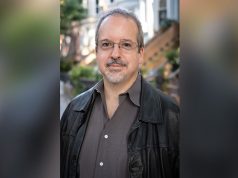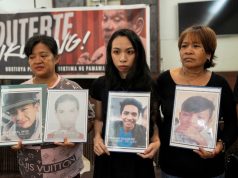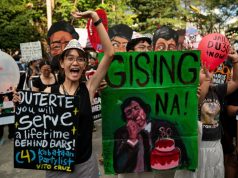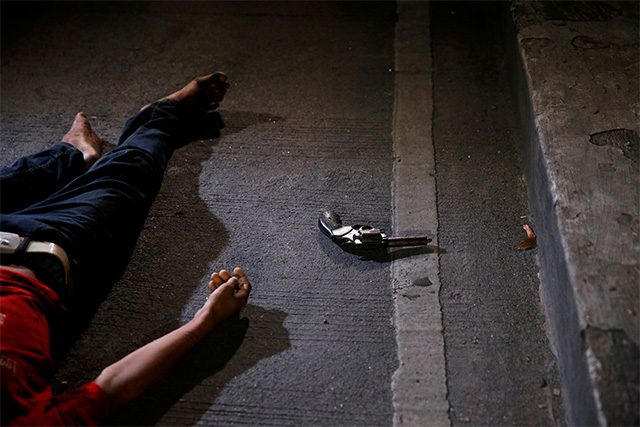
“Dead.”
The national police force is using the word associated with death to warn Filipinos against the usage of illegal drugs as the administration continues its “war on drugs” campaign.
Infographics containing the word were seen on the social media accounts of some police stations such as the one in Cainta, Rizal and Bauko, Mountain Province.
“Dead” is used as an acronym to warn the public that “drugs end all dreams.”
Posts from the police station in Mountain Province include an image of a man hanging from a tree and another infographic which contains an image of a grave marker with the following words:
“Drugs pull you down 6 ft (feet) underground.”
The Philippine National Police is among the institutions tasked to implement the anti-narcotics campaign of President Rodrigo Duterte, along with the Philippine Drug Enforcement Agency.
The initiative has alarmed the global community, particularly the United Nations, for cases of extrajudicial killings that are associated with it.
RELATED: THE WAR ON DRUGS
According to the Human Rights Watch‘s World Report 2021, “drug war” killings in the Philippines have “increased by over 50 percent during the lockdown months from April to July” last year.
“The vast majority of ‘drug war’ killings have not been seriously investigated by the authorities. Only a handful of cases are in varying stages of investigation by prosecutors. Only one case—the video recorded murder of 17-year-old Kian delos Santos in August 2017—has resulted in the 2018 conviction of several police officers,” it noted.
“President Duterte continues to encourage the killings, ordering customs officials in September to kill alleged drug smugglers. He also regularly denounced and dismissed groups that criticize the ‘war on drugs,’ accusing them of weaponizing human rights,'” the report added.
Duterte’s cornerstone presidential campaign was banked on suppressing drugs and criminality in the country.
He said the campaign against illegal drugs was meant to protect people from drug lords and coddlers whose trade has caused dysfunctional families in society.
“Yung (the) human rights, I said, do not destroy my country. And if you destroy the youth of my land, you are destroying my country so that I will kill you,” Duterte was quoted as saying last year.
“I did what I am bound to do. That’s my election promise,” he added.




